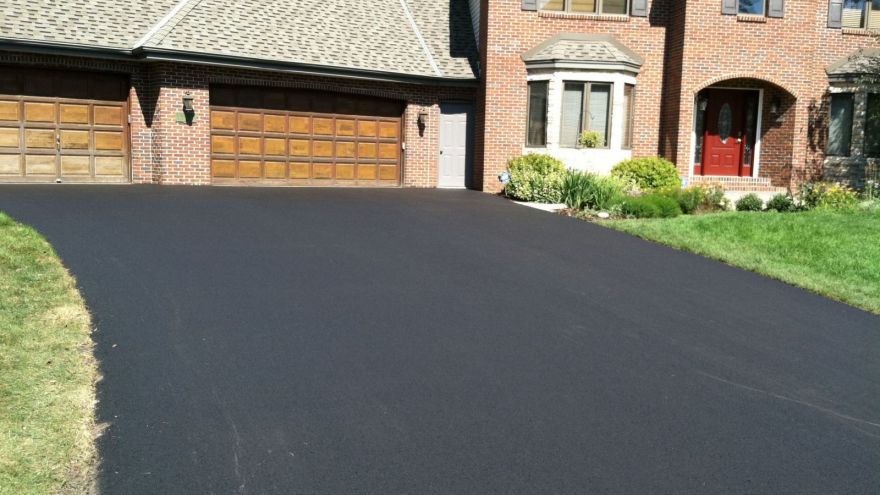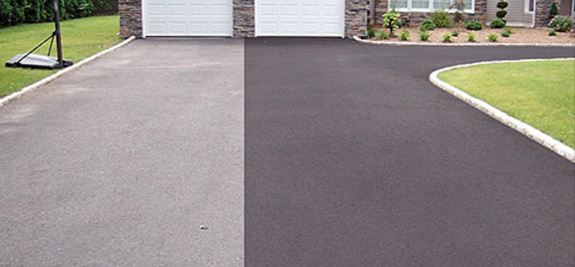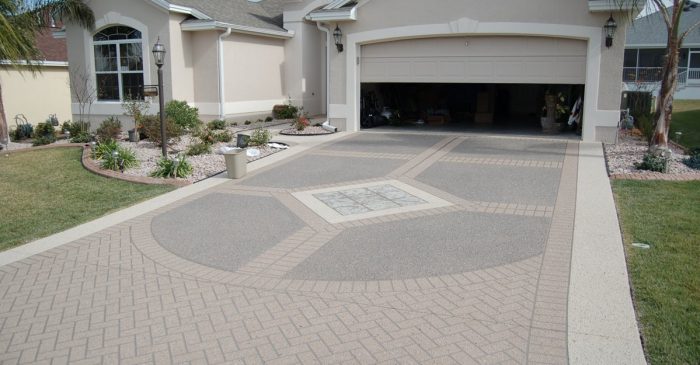- No Obligations
- Stop Paying Too Much For Your Contractor
- No Spam Calling
- Screened & ID Checked Contractors only!
Concrete or Asphalt Driveway? The Pros and Cons of Each
0
 Concrete or Asphalt Driveway? The Pros and Cons of Each
earlyexperts.net
Concrete or Asphalt Driveway? The Pros and Cons of Each
earlyexperts.net
By far, the most common types of driveways are asphalt and concrete. These two driveway materials are similar in the fact that they both consist of sand and stones. The biggest difference in the materials is what binds them. Concrete uses cement as a binder and asphalt uses tar as its binder. This actually makes them vastly different in almost every way. You will want to consider cost, maintenance requirements, appearance, climate, and more when choosing the best driveway for your home.
Installation and Maintenance Costs
As far as installation goes, there is no doubt that asphalt is certainly cheaper. It tends to run between 2 dollars and 5 dollars per square foot installed, whereas concrete will usually run between 3 dollars and 10 dollars a square foot installed. This difference in cost has many people leaning towards asphalt, but the cost of maintenance down the road needs to be considered as well. Concrete doesn’t require much as far as maintenance goes, although when it does need to be repaired, it will cost more for repairs than asphalt and the repairs will be obvious visually, unlike that of asphalt.

However, asphalt does require special maintenance, which can certainly rack up the costs and time spent on it over the years. About half a year to a full year after the asphalt is originally installed, it needs to be sealed. After that, it will require being sealed again every 3 to 5 years. After around 30 years, the asphalt, even if well—maintained, will need to be replaced. Alternatively, a concrete driveway could easily last 50 years or possibly even longer.
Curing Time
Another difference when it comes to asphalt driveways compared to concrete driveways is the amount of time that they take to cure. Both require time to cure before they can be used, but concrete takes longer than asphalt. Asphalt dries and sets considerably faster than concrete due to the high moisture content of concrete. While asphalt should only take a few days of curing before it can be used, concrete will require about a week before it can handle a vehicle being driven on it.
Climate
Interestingly, the climate that you live in should actually play a pretty major role in your decision regarding whether to use concrete or asphalt for your driveway. If you live in a colder climate, you may want to choose asphalt over concrete. For one thing, asphalt tends to do better when it is not exposed to very high temperatures. High temperatures can cause the asphalt to soften. This softening can lead to damage such as crumbling along the edges and even cracks in the driveway. Additionally, it is easier to get ice off of an asphalt driveway than it is to get ice off of a concrete driveway.

Alternatively, if you live in a hotter area, concrete may be your best bet. Not only can high temperatures do damage to asphalt that it won’t do to concrete, but colder temperatures can actually do damage to concrete that they won’t usually cause in asphalt. When temperatures drop below freezing, they can cause what is called “frost heave” in soil surrounding and beneath concrete. This is when the soil swells up due to the cold and it can lead to cracking in concrete. This doesn’t tend to be as much of an issue in asphalt due to its ability to flex. Finally, when exposed to high temperatures, asphalt may cause staining on things like your shoes and you can drag the stains into your home.
Appearance
Possibly the most important factor for many home owners choosing a driveway material is appearance. This can be a very important factor because the driveway is one of the very first aspects of the home that anyone will see. For this reason, it plays a huge role in curb appeal. This is important whether you are just trying to have a nice-looking home for yourself or can be especially important if you intend to sell your home at some point. Curb appeal has a lot to do with how well homes do on the market, so that is certainly something to really consider when you install a new driveway.
Asphalt is very dark in appearance, although recently, they have come up with ways to slightly manipulate the coloring for a little bit of customization with stains and even specialized finishes. Concrete has a lot more flexibility in the sense of appearance due to its much lighter color compared to asphalt. There is a pretty considerable range of different options in regard to stains and finishes for concrete driveways. This allows more personalization for concrete driveways.
Another thing that you may want to consider in regard to the appearance of concrete and asphalt is the way that stains as well as repairs appear on the different materials. Asphalt, with its very dark color, does not show stains easily. Most of the time, you won’t be able to see it if something, even oil, is spilled onto your asphalt driveway. Concrete, however, shows stains very well in most cases and can be harder to clean since it is more porous than asphalt. Repairs on a concrete driveway are also very obvious visually, while you can’t easily tell where an asphalt driveway has been repaired.
Final Thoughts
Hopefully, after learning some basic differences between asphalt and concrete, it won’t be too difficult to make your decision. Since the two are so different in so many ways, there is usually one clear winner for each person’s individual needs and preferences. Often times, your climate can make the decision for you while other times people quickly make a choice based off of what they think looks best. Considering the short-term and long-term costs can really help as well. Fortunately, both asphalt and concrete make wonderful driveways, so whichever one you choose will serve its purpose well.











